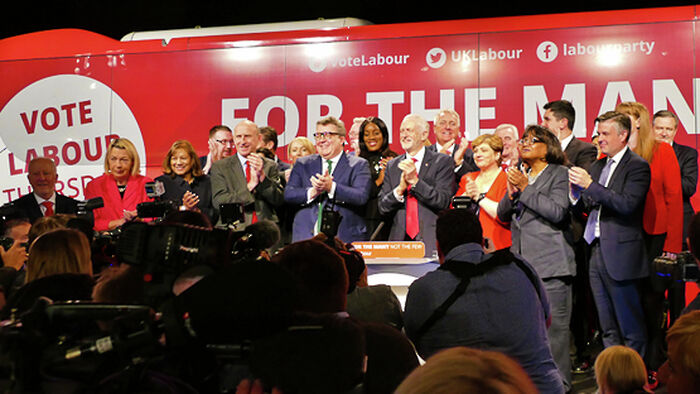Brexit has revealed a widening generational chasm
Reflecting on the outcome of the EU referendum, columnist Tom Nixon draws some concerning conclusions from the voting patterns that were exposed.

The Brexit vote has revealed generational voting patterns so stark that they have the potential to change UK politics. Power now increasingly lies with the younger generation, and politicians will have to listen to their views to remain relevant. This has profound implications for negotiations: if the parties want to win their support, they will need to actively shift away from the brink of a hard Brexit.
Voting in the Brexit referendum revealed perhaps the most startling patterns in recent British history. The statistics demonstrated an astonishingly divided society. 70% of voters holding only GCSEs or less voted leave, meanwhile 68% of degree holders voted remain; the facts speak for themselves. Parties were internally divided, but more Labour voters voted to stay and more Conservatives voted to leave. These statistics are clearly worthy of comment, but the most crucial data for today’s politics can be found in the generational divisions reflected in the referendum result.
“But it is not only for political success that parties should listen to the aspirations of younger voters; the younger generation is the future”
Age is always an important factor in elections, but Brexit and the subsequent snap election have showed that age, more than anything else, is the key to understanding current political views. In the referendum last year 71% of those between the ages of 18 and 24 voted to remain. The result angered many younger voters, particularly those just shy of 18 years old at the time of the referendum.
In the aftermath of the result, some articles even suggested that had the voting age been lowered, remain would have won. Whether or not this is true, however, is not the most important question. What is vital is the implication of this generational divide for future Brexit negotiations and British politics as a whole.
The generational divide was further compounded by the critical error of judgement made in the last election. Aside from the robotic and highly formulaic campaign that was conducted by an almost animatronic Theresa May, it was her position on social care funding for the elderly that sank her campaign. This so-called “dementia tax” was slated by the media and wider public. The policy was not only unpopular because it targeted the vulnerable, but also largely because it victimised the elderly.
The Conservatives have done well previously from their “triple lock” guarantee over pensioner’s rights, but it was arguably upon the breaking of this pact with the older generation they sealed their fate. Labour’s response, unsurprisingly, was to condemn the planned changes and to affirm their commitment to supporting the elderly.
Some would draw from this that the elderly are the key to future electoral success and to Brexit policy, but it was not just the elderly who were important in deciding the result of the last election – the shift towards Labour was driven by a surge in the youth vote.
Both the referendum and the election results demonstrate that the views of the younger generation need to be respected. The ability of Corbyn-mania to invigorate younger voters makes their views much more relevant for UK politics as a whole. The Conservatives can no longer count on the "grey vote" to sustain their electoral lead. It was apparent from the mounting discussion of the youth vote at their last party conference that they face an existential threat: their core voters are literally giving up the ghost.
Both Labour and the Conservatives would do well not to ignore the new-found political energy of the younger generation. Brexit policy must take into account the views of a generation who feel greater solidarity with Europe and reject the old politics of nationalism. Labour has shown some signs of shifting in this direction, increasingly emphasising the importance of the single market. If the government continues along its rickety track towards the precipice of a no-deal Brexit they will not only be making a colossal error of judgement, but will be demonstrating their own increasing political irrelevance.
But it is not only for political success that parties should listen to the aspirations of younger voters; the younger generation is the future. By the time Brexit is achieved many of the people who voted to leave will no longer be around to enjoy its potentially disastrous results
 News / Hundreds of jobs to be cut at Cambridge University Hospitals1 April 2025
News / Hundreds of jobs to be cut at Cambridge University Hospitals1 April 2025 Comment / More Cambridge students should study abroad 1 April 2025
Comment / More Cambridge students should study abroad 1 April 2025 News / Caius clock hand returned nearly 100 years after student prank31 March 2025
News / Caius clock hand returned nearly 100 years after student prank31 March 2025 News / Uni partners with controversial Hong Kong university2 April 2025
News / Uni partners with controversial Hong Kong university2 April 2025 Features / Cloudbusting: happy 10th birthday to the building you’ve never heard of30 March 2025
Features / Cloudbusting: happy 10th birthday to the building you’ve never heard of30 March 2025



